Table of contents
- Natasha Marcello & Rory Boyle
- Fitzroy, Australia
- Business started in 2024
- 30 employees
- 7 Figures ARR
- Bootstrapped
- For Keeps Merch
Natasha what’s your backstory?
I grew up in Melbourne, and while I wasn’t the kid running a lemonade stand, there was always a restlessness with being told what to do. Independence and control over my own path became the driving force that pushed me toward entrepreneurship.
I studied journalism at Swinburne, but quickly realised my real interest was in building businesses. My first big chapter was helping grow a corporate gifting company to a $28 Million acquisition. During lockdown, I launched Snacks With Bite and sold it within its first year for $1 million.
Those wins were huge, but they also showed me the downside of the industry: endless disposable products and waste. That tension stuck with me and became the idea for For Keeps Merch.
Alongside building businesses, I also run The WIBS Podcast, a platform advocating for women in business and sharing insights on leadership and growth.

What does For Keeps Merch do, and how did you come up with the idea?
For Keeps Merch is all about creating branded merchandise people actually want to keep. We flipped the old “slap your logo on a pen” model on its head and instead designed merch that feels like something you’d buy yourself. That is stylish, thoughtful, and sustainable.
The inspiration came from seeing firsthand how much money (and landfill) corporate merch was creating. When I bought into Promotions Warehouse, I knew the brand needed a reset. Rebranding to For Keeps Merch gave us a name that captured our mission: merch that lasts, merch that belongs.
How do you approach building and leading your team?
I lead with transparency, trust, and a healthy touch of humour, and I would say my style is collaborative. I want everyone to feel a sense of ownership in what we’re building. Our values are our anchor. Quality, creativity, and doing things the right way.
I’m also big on celebrating the little wins. Startups move fast, and it’s easy to only look at the big milestones, but I’ve learned culture is built in the pauses. Especially in recognizing effort, saying thank you, and making the journey feel worthwhile.

How did you acquire your first 20 customers, and what strategies worked?
Our first clients were a mix of retained relationships from the Promotions Warehouse days and new ones won through showing, not telling. We sent mockups, samples, and sometimes even over-delivered before an invoice was signed.
That approach, listening closely to what HR teams and marketing managers wanted, and then going above and beyond to prove we could deliver it, helped us land those early partnerships. And importantly, we kept them.
How did you make sure your products met customer needs?
Most merch companies are product suppliers. We deliberately positioned ourselves as a partner. That means we don’t just take orders, we manage the whole process from creative design and product sourcing to warehousing, fulfilment, and even running branded merch stores.
This end-to-end model sets us apart because clients don’t have to juggle multiple vendors. We become an extension of their team, their merch arm.

What distribution channels worked best, and how did you identify them?
For us, it’s been all about relationships and visibility in the right spaces. Digital spaces such as LinkedIn have been our strongest channel - it’s where HR leaders, marketing teams, and operations managers are already looking for ideas, and our focus on storytelling and showcasing real client projects has been the key to cutting through. We’ve also had great traction from referral partnerships and word-of-mouth. Once a client experiences the level of service and creativity we bring, they often introduce us to other departments or peers in their network.
Merch isn’t something people impulsively buy; it’s a considered purchase that works best with context and trust. What we learned is that our energy is far better spent being specific, not broad – tailoring outreach, showing free preview mockups, and creating content that proves our value upfront. That shift from “selling products” to “partnering on solutions” has made all the difference.
What strategies have been key to standing out in such a competitive merchandise industry?
We over-communicate and over-deliver. Our clients know exactly where their order is, and we’re always honest about timelines and options.
We also don’t just take briefs at face value. Our creative design team makes thoughtful suggestions so the end product is always elevated. That’s why our clients feel like we’re a partner, not just a supplier.

With a 4.9-star product review rating and industry awards, how does For Keeps Merch keep customer satisfaction so high?
It comes down to two things: service and intention. We don’t see ourselves as a “merch store” – we’re a merch partner. That means we go beyond just sourcing products to really understand what the client is trying to achieve, and then curate solutions that make an impact. Our in-house design team, dedicated account managers, and strong supplier relationships allow us to move quickly, stay creative, and deliver on time. Most importantly, we make the process easy. Clients know they can trust us to handle the details, so they can focus on the bigger picture.
That consistency is why our clients come back, and why they’re willing to recommend us, the 4.9-star rating isn’t about perfection, it’s about genuinely caring about the outcome and fixing things fast if something ever does go wrong.
What do you believe is the key to maintaining strong customer loyalty?
Making people feel seen. Whether it’s a 50-piece order or 50,000, we put the same care into every job.
We check in after delivery, celebrate our clients’ wins on socials, and make sure their merch feels like an extension of their brand. Loyalty is built when clients know you’re as invested in their success as they are.
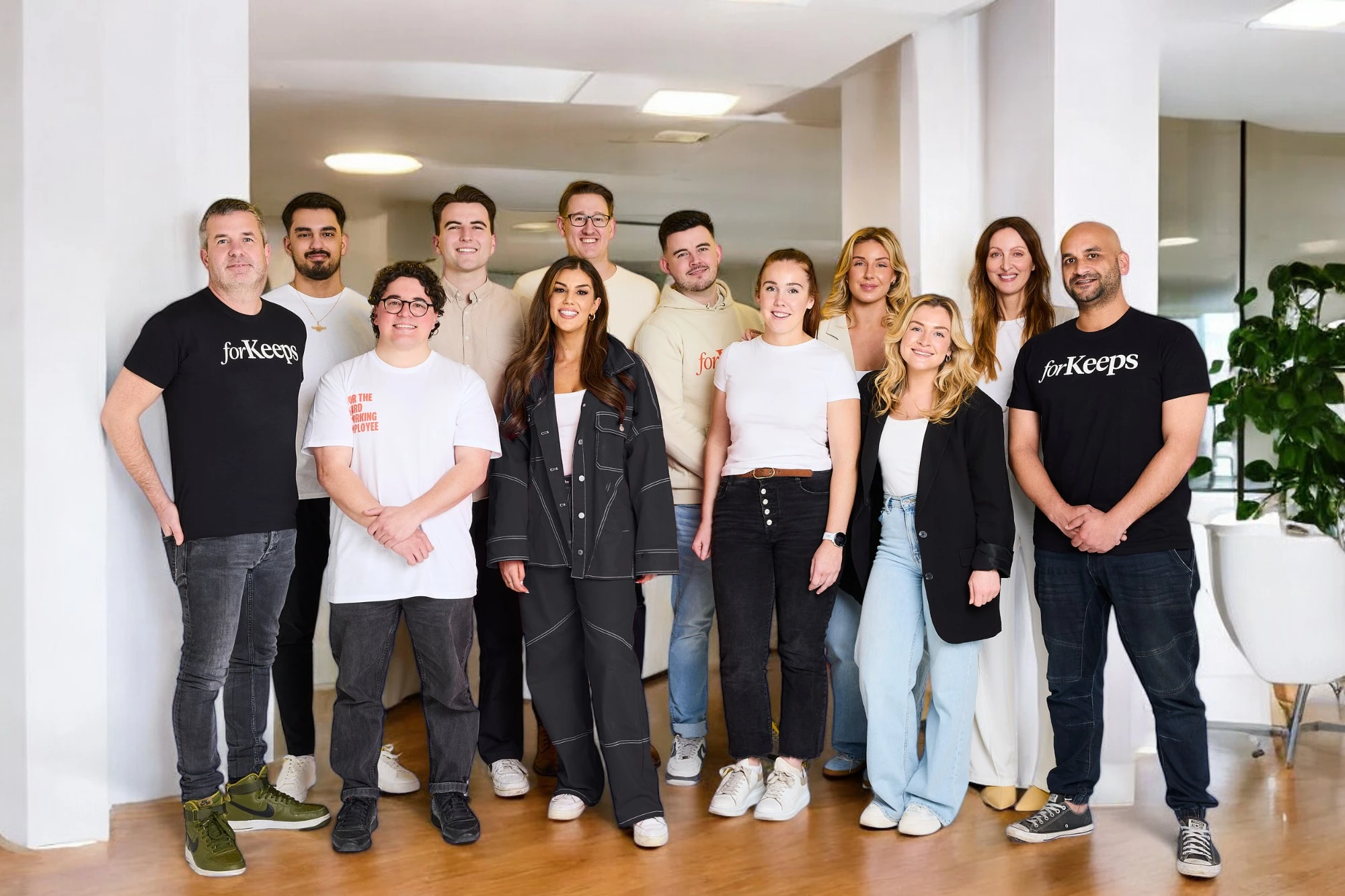
How do you price your merch to stay competitive while supporting sustainability and durability?
We don’t compete to be the cheapest; we compete to deliver the best value. For Keeps isn’t about pumping out bulk products that end up in the bin; it’s about creating merch people actually want to keep.
Pricing reflects that. Instead of asking “how cheap can we go,” we ask “what outcome are you trying to achieve ?” For some clients, that means a hero product everyone will use every day. For others, it’s a curated merch box that makes onboarding feel special.
We give a clear spectrum of options so clients can choose within their budget, but we’re always upfront about the trade-offs - why one product lasts longer, why a certain material is more sustainable, why packaging matters. Our role as a partner is to guide them to spend smarter, not just spend more. And what we’ve seen time and again is that investing in quality actually saves money long-term, because people use, keep, and value the merch.
How do you balance affordability with eco-friendly, long-lasting products?
We give options, not everyone has a huge budget, but that doesn’t mean they have to sacrifice quality or meaning. Sometimes it’s a mindset shift: would you rather buy 1,000 cheap items people throw away, or 300 great ones they’ll actually use?
That education piece has been huge for us. Clients are realising they get more impact with less waste.
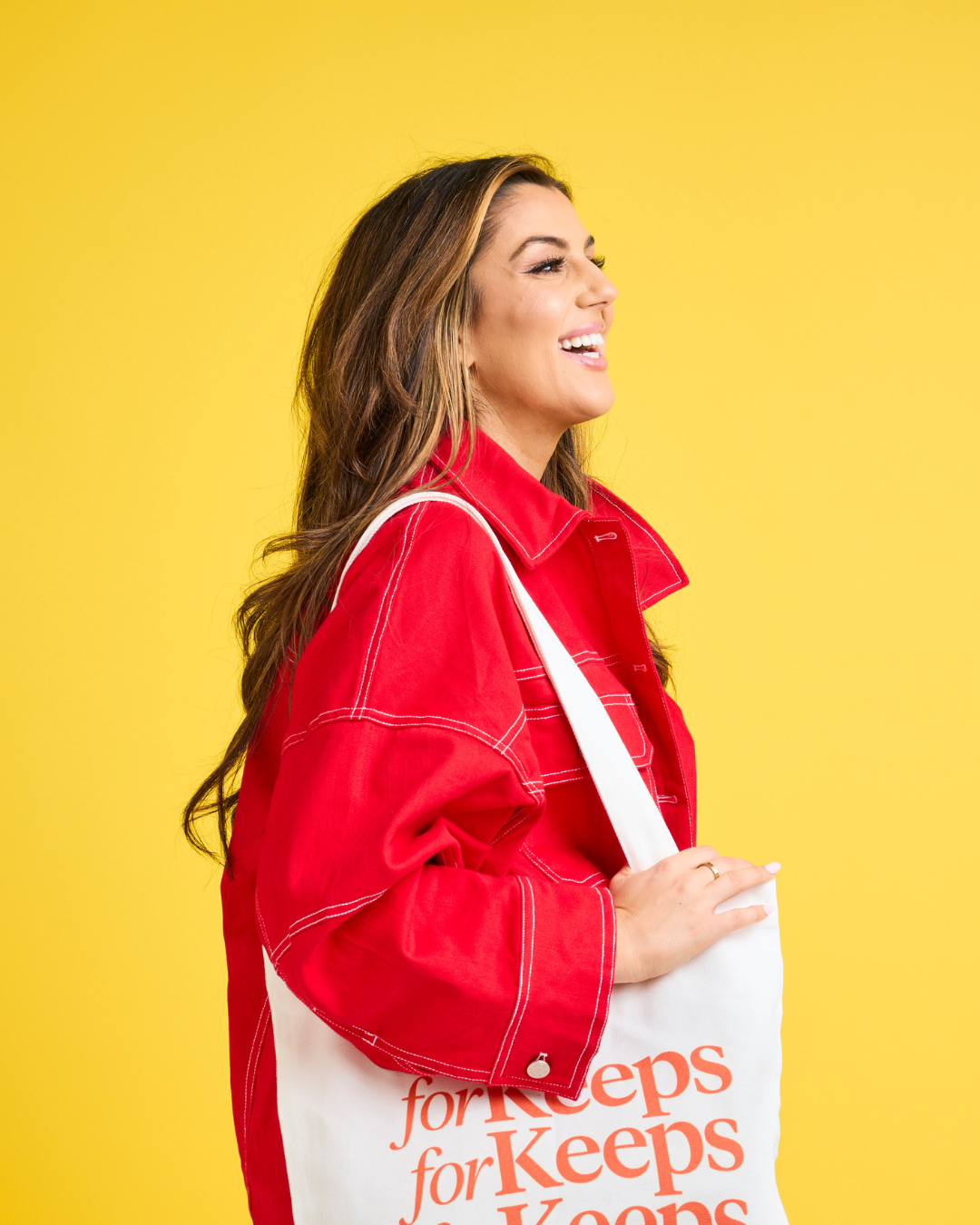
What trends are shaping branded merch, and how is For Keeps Merch preparing?
We’re seeing a shift away from merch as a “nice-to-have” to merch as a strategic tool. The biggest trends shaping the future are:
Merch as culture: companies are using merch to build belonging, not just brand awareness. From onboarding kits to recognition gifts, it’s becoming part of how businesses create culture and connection.
Sustainability with substance: the days of greenwashing are over. Clients want transparency on materials, sourcing, and waste.
Personalisation and curation: one-size-fits-all no longer cuts it. People want merch that feels unique to them, which is why curated merch boxes and tailored experiences are on the rise.
End-to-end solutions: companies don’t want five different suppliers. They want a partner who can design, source, warehouse, fulfill, and even manage merch stores. Convenience and scalability are driving decisions as much as creativity.
What’s your long-term vision for For Keeps Merch?
Our vision is for For Keeps to become synonymous with meaningful merchandise—the kind that creates connection, builds culture, and lasts.
We’re not just here to sell products; we’re here to redefine the industry. That means being the go-to merch partner for businesses. as the team they trust to design, source, store, fulfill, and manage their branded experiences end-to-end.
Long-term, I want to see For Keeps set the standard globally for what sustainable, design-led, purpose-driven merch looks like. If we can shift companies away from throwaway promo items and towards merchandise that strengthens culture and creates pride, then we’ve done more than grow a business; we’ve changed the way an industry operates.
On a personal level, my vision has always been about more than business growth. It’s about purposeful impact, transforming traditional industries, creating sustainable solutions, and empowering others, especially women in business, to lead with authenticity and innovation. For Keeps is the vehicle to bring that vision to life.
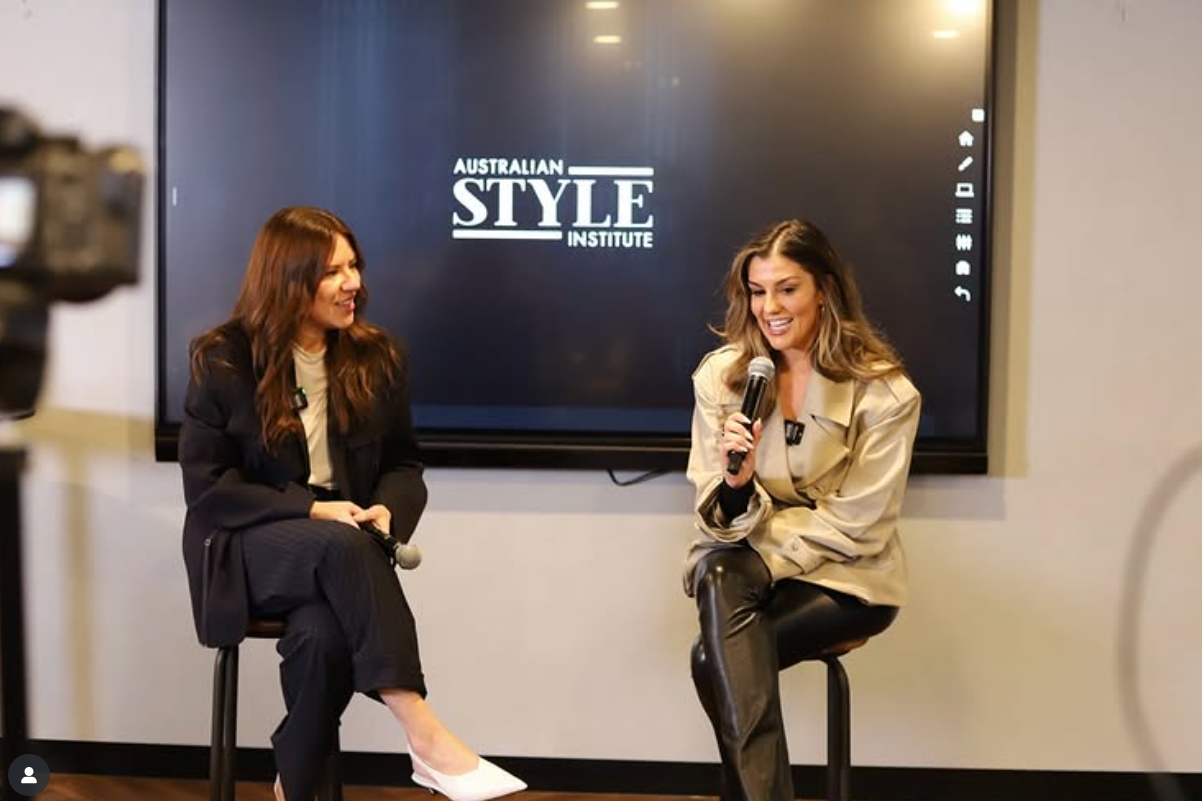
What specific tools, software, or resources have been most helpful in growing your business?
On the tech side, HubSpot has been huge for us - it gives me visibility across the pipeline and keeps the team aligned. Canva is another go-to because it lets us quickly bring ideas to life for clients.
But the truth is, the biggest “tool” we’ve had is relationships. Strong supplier partnerships are what give us speed, quality, and the ability to deliver on big campaigns without hiccups. And platforms like LinkedIn have helped me share our story in a way that attracts the right clients.
At the end of the day, it’s a mix of the digital and the human. The software keeps us efficient, but the relationships are what keep us competitive.
Who are some entrepreneurs or experts you recommend following for business growth?
I really rate Emma Grede. She’s real, raw, and doesn’t sugarcoat the realities of building something big. She’s proof that you can scale globally without losing authenticity.
I also listen to Steven Bartlett (Diary of a CEO). I love the way he looks at business holistically - not just the financials, but mindset, relationships, health, and the human side of leadership.
For me, that balance matters. Business isn’t just about the P&L - it’s about people, culture, and the decisions that compound over time. That’s what I connect with when I’m looking for inspiration.
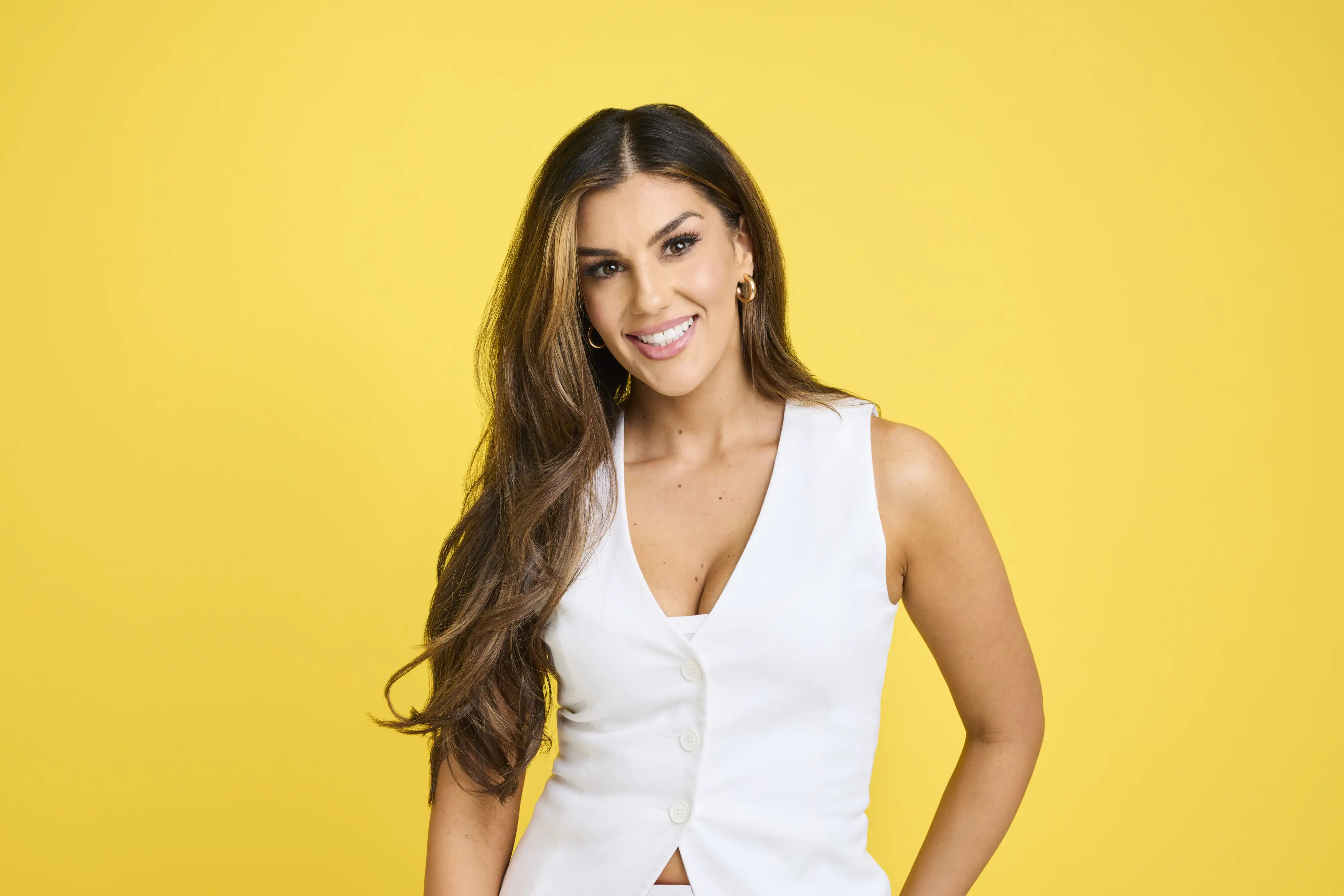
What advice do you have for founders looking for the right channels to attract customers?
Early on, I learned that the most powerful channel isn’t always a platform - it’s people. Relationships and referrals have been huge for For Keeps, and they only happen when you show up and deliver above expectations.
That said, I’m a big believer in showing, not telling. Our most effective “outreach” has been sending mockups, samples, or curated boxes that let potential clients feel what we do, instead of just reading about it in an email. That lands so much better than a cold pitch.
So my advice to founders: don’t try to be everywhere at once. Go where your customers already spend time, listen to what they actually care about, and prove your value in a way that feels real. If you do that consistently, the right channels will open up for you.
What drives you to do what you do?
People drive me more than anything else. At For Keeps, it’s about the people behind the brands we partner with. Creating merch that makes their teams feel proud, connected, and valued. I love seeing the spark when someone unboxes merch that feels like it was made for them, or wears their company merch confidently with a strong sense of belonging.
With The WIBS, it’s about people, too, giving women in business a space to share their real stories, their challenges, and their wins. What keeps me moving forward is knowing that, whether through a product or a podcast episode, I’m helping create moments of belonging and connection for people who need it most.
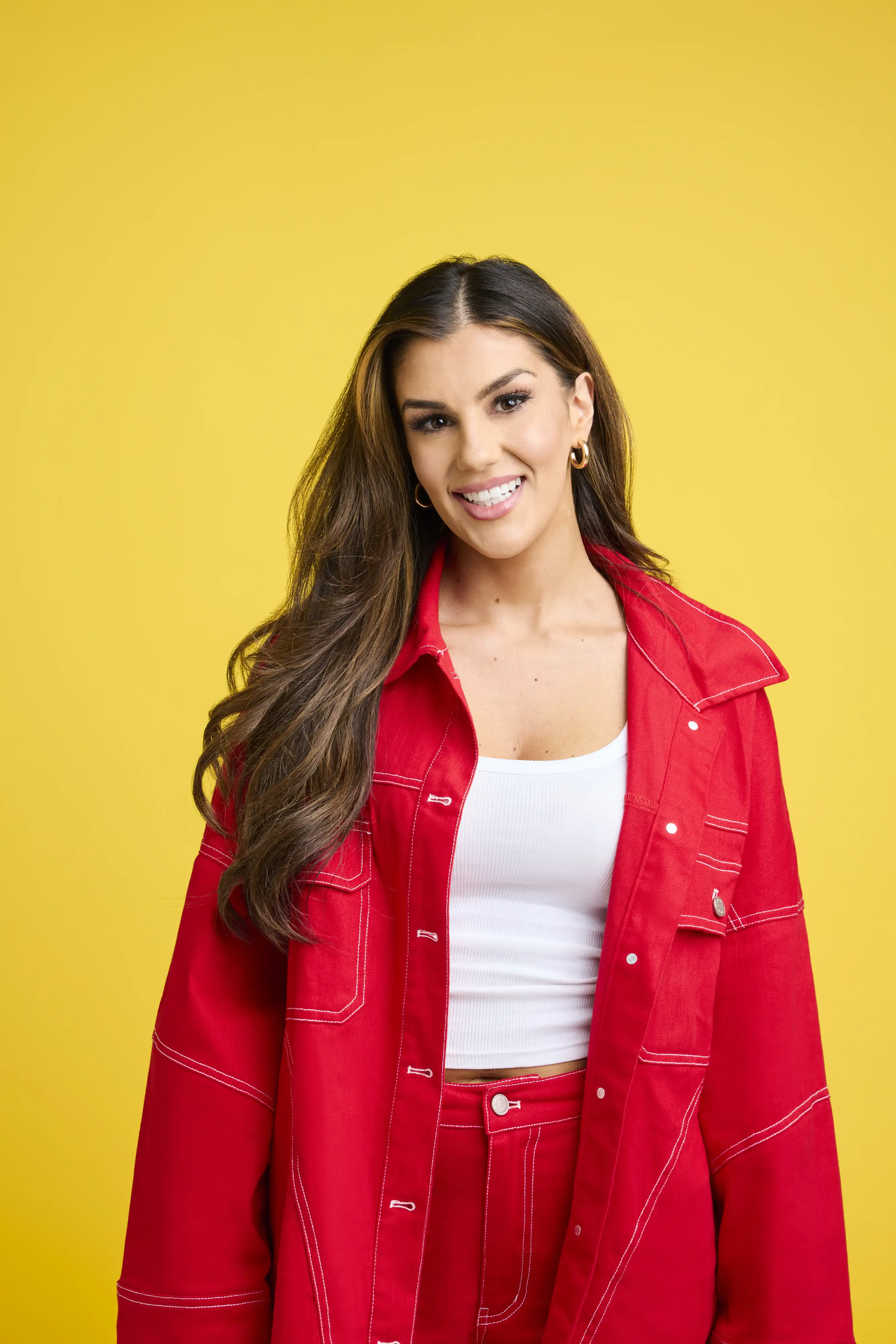
Any quotes or principles you live by?
“Connection outlasts transaction.”
Everything I do, whether it’s For Keeps or The WIBS, comes back to that.
Relationships, trust, and community will always be more powerful than a quick win. When you build with people at the centre, everything else follows.

%20Logo.svg)




